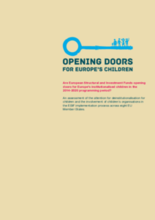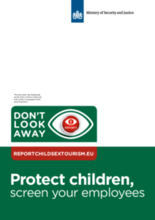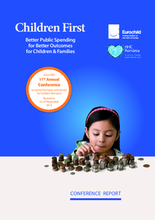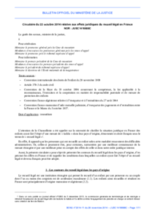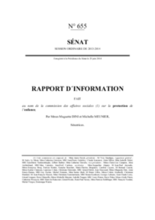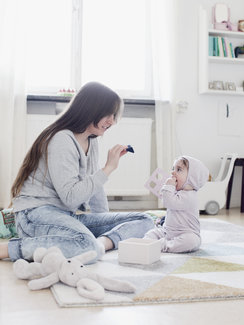

Displaying 341 - 350 of 423
This report is based on the outcomes of a survey addressed to eight National Coordinators of the Opening Doors campaign. It aims to assess the extent to which EU Member States have used ESIF to catalyse child care systems reform.
The Dutch Ministry of Security and Justice has developed this flyer, along with ECPAT Netherlands, Better Care Network Netherlands and Terre des Hommes Netherlands, to motivate foreign organizations working with children to ask for a Certificate of Conduct when recruiting Dutch volunteers or employees.
In this article, Yudhijit Bhattacharjee discusses the critical brain development that happens in the first year of a baby’s life, and the impact that growing up in poverty has on that cognitive development.
This report summarizes the discussions and activities held at Eurochild’s 11th Annual Conference, co-hosted by Hope and Homes for Children in Bucharest, Romania on 26-28 November 2014.
Eurochild is holding its 11th Annual Conference, 'Children First: Better Public Spending for Better Outcomes for Children and Families' in Bucharest, 26-28 November 2014
In November 2014 a two-day international conference on children’s rights will take place in Leiden, the Netherlands, to herald the 25th anniversary of the adoption of the UN Convention on the Rights of the Child (CRC).
La présente circulaire a pour objet de présenter les contours de la 'kafala' dans les pays d'origine, d'en préciser les effets en France et de rappeler les conditions dans lesquelles un enfant ayant fait l'objet d'un recueil légal et devenu français peut être adopté.
The theme of “Ensuring the Rights of the Child, and Family-based Services” chosen for the IFCO 2014 European Conference invites workshop ideas, plenary topics and attendees who envision foster care, and indeed, all alternative care as the holistic system that IFCO promotes.
La commission des affaires sociales du Sénat a demande une mission sur la protection de l'enfance afin d'étudier la mise en oeuvre de la loi de 2007 réformant la protection de l'enfance. Cet état des lieux plaide pour des ajustements et des évolutions répondant à trois objectifs : améliorer la gouvernance nationale et locale de la protection de l'enfance ; rendre le système plus efficace à tous les stades et sécuriser le parcours de l'enfant protégé.
SOS Children's Villages is offering a paid internship based in its international office in Vienna to support a global campaign team in the day to day running and future development of its global advocacy Care For Me project

